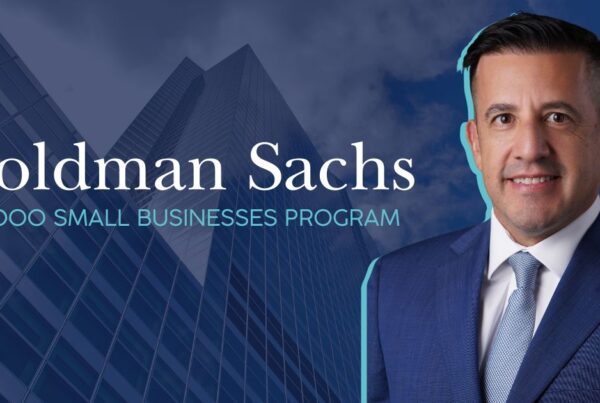If you’ve been considering launching a vending-machine enterprise—whether placing soda/snack machines in office buildings, micro-markets in break rooms, or niche specialty machines (healthy snacks, tech accessories, etc.)—it can be an attractive business model: relatively low overhead, scalable, passive-income potential. But like any business, success depends on doing the homework: making sure your licensing and tax-compliance are sound from the outset. Below is a practical guide covering the key steps and pitfalls.
Step 1: Business Structure & Setup
Before you place machines, you’ll want a clean business foundation:
- Choose your business entity (sole proprietor, single‐member LLC, partnership, S-Corp, etc.). For example, many vending-machine operators start with a single-member LLC that is treated as a disregarded entity for federal income tax and report results on Schedule C.
- Obtain a federal Employer Identification Number (EIN) from the Internal Revenue Service if required (especially if you will have employees, or prefer your banking/licensing separation).
- Register your business with the State of Florida (if you operate in Florida) and/or other states where your machines will be located.
- Obtain a general business license from the county/city where you are headquartered or operating; check municipal/municipal-zoning rules for placing machines.
- Draft a location-placement agreement (with the host business/property) that covers rent or commission, rights, machine ownership, maintenance, access, and revenue share.
Step 2: Permits & Licenses for the Vending Machine Business
Beyond the entity setup, the vending-machine business carries several specific permits/licensing requirements. Here are the common ones:
- Seller’s Permit / Sales-Tax Permit: In most states, if you are vending taxable goods (snacks, drinks, merchandise) you must register as a retailer and collect sales tax.
- Health / Food Permit: If you vend food or beverages (especially perishable or heated/ready-to-eat items) you may need a health department permit or inspection, depending on the state/locality.
- Zoning / Location-Use Permits: The placement of machines may require permission from the host property and compliance with local zoning, building, and fire codes (especially for machines in common areas).
- Other Regulatory Considerations:
- Americans with Disabilities Act (ADA) compliance for machine accessibility.
- Food-labeling and regulatory compliance if you supply items through the machine that are regulated (e.g., nutrition labeling, allergen disclosures).
- Machine‐ownership registration or state business license depending on jurisdiction.
- If you sell machines, lease them, or involve third-party owners, resale certificates or exemption issues may come into play. For example, some states treat vending-machine operators differently when they acquire the goods for resale.
Step 3: Sales Tax & Vending Machine Transactions
Understanding the sales tax obligations is critical. Vending-machine business owners are often treated as “retailers” under state law, thereby requiring registration, collection, filing, and remittance. Here are key points:
- The taxability of items dispensed may vary depending on the product (snacks vs full meals vs heated items) and the payment method (cash vs card). For example, in New York some items under a certain price threshold may be exempt when sold through a vending machine.
- Each state has its own rules regarding whether a machine sale is taxed at full rate, reduced rate, or exempt, and whether you must file local returns (in addition to state). Example: In Virginia, vending-machine dealers must file returns for each locality unless consolidated.
- Common mistakes include: (a) failing to register with the tax authority, (b) purchasing products as tax-exempt for resale but then not collecting tax when sold, (c) failing to properly segregate taxable vs exempt product categories.
- For Florida context: Florida’s general sales tax rate is 6 %, plus local discretionary surtaxes up to about 1 % in many counties. (Reminder: snack/food tax rules might differ for “prepared food” vs grocery items.)
Step 4: Income Taxes & Business Expense Deductions
From an income tax perspective, running vending machines can offer attractive deduction opportunities—but with compliance requirements:
- Income from vending-machine operations must be reported. If you operate via a disregarded LLC, you might report on Schedule C (self-employment). Be aware of self-employment tax (Social Security/Medicare) if you actively manage the business.
- Capital equipment (vending machines) are business assets. Under Section 179, you may be able to deduct the full cost of qualifying vending machines in the year of acquisition (subject to limits) instead of depreciating over many years.
- Alternatively, machines may be depreciated under the Modified Accelerated Cost Recovery System (MACRS) over 5-7 years.
- Deductible expenses include: machine purchase/lease cost, electricity, machine maintenance/repair, product cost, spoilage/expired inventory, insurance, vehicle costs for servicing machines, commissions to host locations, travel/time.
- It is important to maintain good records: machine-location logs, gross receipts per machine, cost of goods sold per machine, product categories (taxable vs non), maintenance expenses, etc. Many states require separate records by machine. (See Virginia example.)
- If your business enters multiple states, you may have nexus (taxable presence) and need to comply with multi‐state income or franchise tax rules (depending on location), so consulting a tax advisor is wise.
Step 5: Ongoing Compliance & Best Practices
To keep your business solid and limit risk:
- Keep monthly (or at least quarterly) reconciliations of each machine: receipts in, product cost in, maintenance cost, downtime, location commission or rent paid.
- File sales tax returns as required at the state/local level. Many jurisdictions require returns monthly or quarterly depending on tax collected.
- Ensure you have proper contracts with host locations: specify who stocks what, how commissions or rent are calculated, what happens if host business moves or terminates access.
- Monitor product mix, especially for items that might shift tax status (e.g., heated/ready-to-eat sandwiches vs bagged snacks).
- Stay current with local health‐department rules if you deal in food/beverages (especially perishable or heated items).
- Insure your machines (theft/vandalism liability), and make sure host location has rights defined if there’s damage or machine removal.
- Budget for downtime or machine movement: location changes, machine upgrades, new payment systems (cashless, mobile pay) can be incremental cost but important for competitiveness.
Key Licensing & Tax Checklist for Florida Operators
Since you operate in Florida (Miami area) and may expand in South Florida or beyond, here’s a checklist tailored for Florida context:
- Register your business entity (LLC, etc) with the Florida Division of Corporations.
- Get a Florida sales tax (sales and use tax) registration from the Florida Department of Revenue. Florida’s general rate is 6 % plus any applicable county surtax.
- Determine product taxability: in Florida “prepared food” or meals may have different tax treatment than bagged snacks.
- If machines are located in Miami-Dade or Broward counties, check if there’s any additional local tax or licensing requirement (some municipalities may require business tax receipt or machine location permit).
- If you vend food/beverage items (especially heated or ready to eat) check with the local Health Department (Miami-Dade County or Broward County) for any permit/inspection requirement.
- Maintain separate bookkeeping for each machine: gross receipts, taxable vs non-taxable items, product cost, maintenance.
- File and remit Florida sales tax on schedule (as per Department of Revenue), likely monthly if you collect enough tax.
- On your federal return (Form 1040 plus Schedule C, or Form 1120-S if you elect S Corp) report income from vending. Claim machine purchase via Section 179 or depreciation. Deduct other related business expenses.
- Review your location contracts: ensure you have permission in writing from the host business/property to place machines, specify rent/commission terms, machine servicing responsibilities, and term/termination.
- Stay updated: Florida and municipalities may amend rules; e.g., payment systems (cashless) may change how you classify transactions; product categories (healthy snack exemptions) may evolve.
Common Pitfalls & What to Avoid
- Failing to register for sales tax: Treating your vending machine as a “passive investment” and not as a retail business can trigger penalties for uncollected tax.
- Mixing taxable vs exempt items without tracking: Example: some states exempt certain beverages when sold at low cost in vending machines; others treat heated foods differently. (See New York example).
- Poor record-keeping per machine: If you cannot show gross receipts/inventory per machine, you may face challenges in audits or when claiming deductions. (See Virginia example).
- Neglecting health/food safety rules: Especially if you vend sandwiches, salads, heated items—these are more heavily regulated.
- Overlooking contract terms/location risk: A great location today may terminate access tomorrow; machines get moved/apportioned incorrectly if not properly secured.
- Underestimating capital expense or downtime: Machines need maintenance, electricity, stocking; a machine in a poor‐traffic location can drag profitability; factoring realistic service cost is key.
- Ignoring multi‐state presence: If you place machines in more than one state, each state has its own tax, licensing and registration rules—don’t assume one size fits all.
Conclusion
The vending-machine business can offer a flexible, scalable income stream—especially well-suited for an enterprising professional who wants something semi-passive but still hands-on in locations and logistics. But the regulatory and tax compliance side is real and must be managed proactively. Getting your licensing in order (business entity + seller’s permit + health/food permit as needed), understanding your sales-tax responsibilities, setting up strong record-keeping and bookkeeping, and optimizing your asset deductions (machine purchase via Section 179 or depreciation) are all foundational.
If you need help with this, contact one of our experienced attorneys in Miami at 305-570-2208.
You can also contact our founding attorney Eduardo A. Maura at eduardo@ayalalawpa.com.
Schedule a case evaluation online here.
[The opinions in this blog are not intended to be legal advice. You should consult with an attorney about the particulars of your case].
Subscribe to Our Blog
Stay informed with our latest blog posts delivered directly to your inbox. Gain valuable legal insights, tips, and advice from our seasoned attorneys.








